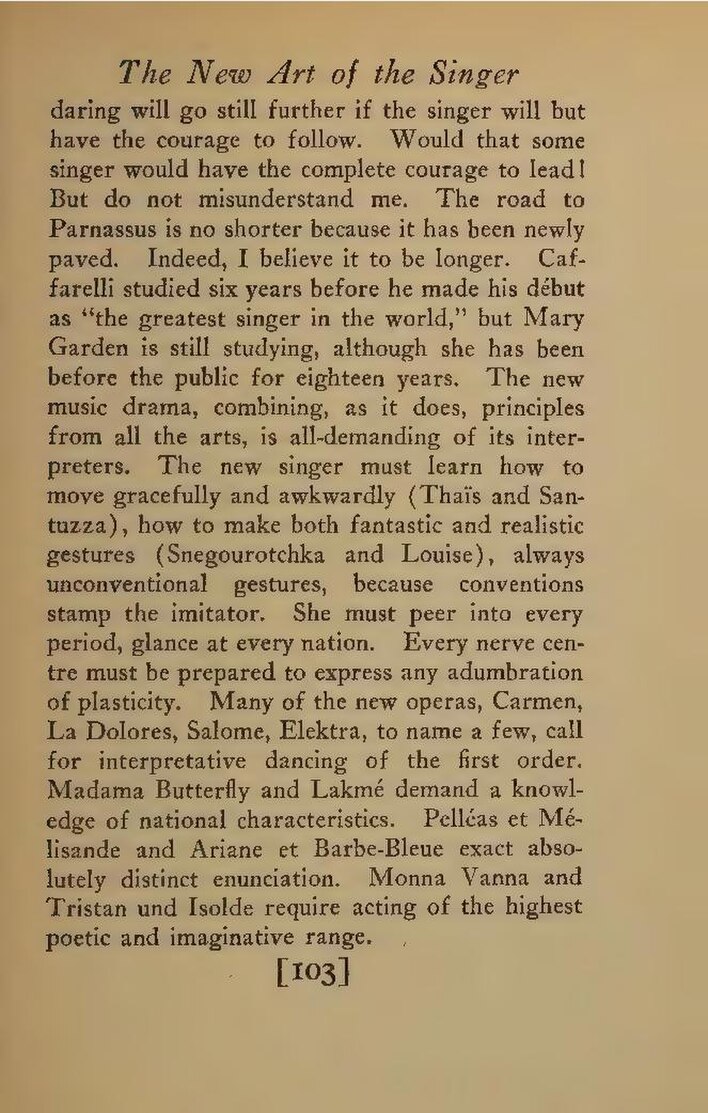daring will go still further if the singer will but have the courage to follow. Would that some singer would have the complete courage to lead! But do not misunderstand me. The road to Parnassus is no shorter because it has been newly paved. Indeed, I believe it to be longer. Caffarelli studied six years before he made his début as "the greatest singer in the world," but Mary Garden is still studying, although she has been before the public for eighteen years. The new music drama, combining, as it does, principles from all the arts, is all-demanding of its interpreters. The new singer must learn how to move gracefully and awkwardly (Thaïs and Santuzza), how to make both fantastic and realistic gestures (Snegourotchka and Louise), always unconventional gestures, because conventions stamp the imitator. She must peer into every period, glance at every nation. Every nerve centre must be prepared to express any adumbration of plasticity. Many of the new operas, Carmen, La Dolores, Salome, Elektra, to name a few, call for interpretative dancing of the first order. Madama Butterfly and Lakmé demand a knowledge of national characteristics. Pelléas et Mélisande and Ariane et Barbe-Bleue exact absolutely distinct enunciation. Monna Vanna and Tristan und Isolde require acting of the highest poetic and imaginative range.
